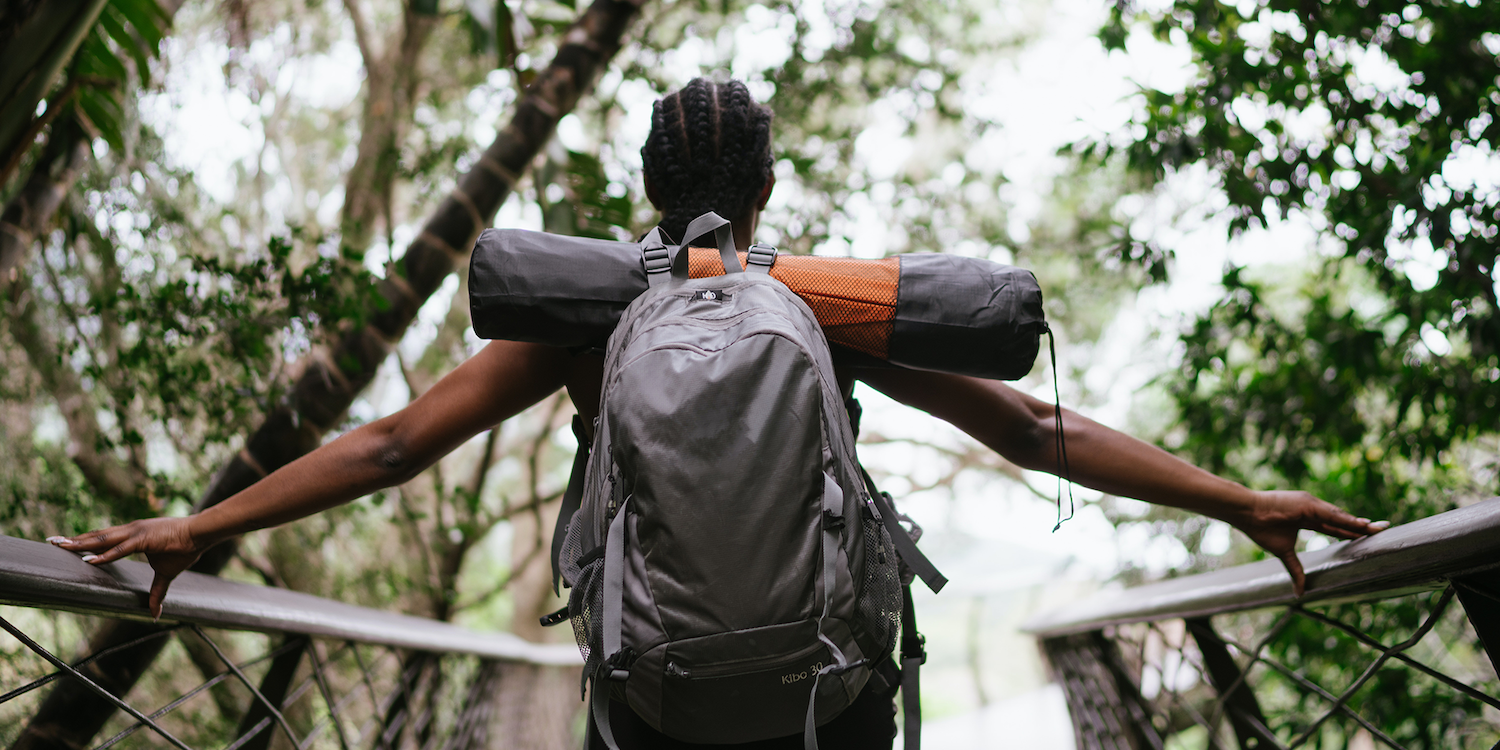
These BIPOC Beauty Brand Founders Are Prioritizing Mental Health For Themselves And Their Team
Before the pandemic hit, Tara Darnley made a New Year’s resolution declaring she wouldn’t allow anything to compromise her peace. “Not work, not family, nothing,” she stresses. Once 2020 rolled around, well, that proved to be difficult. A week before her locs haircare line Peculiar Roots launched, coronavirus swept the country and disrupted the U.S. economy along the way. Her company, though, grew to six figures in the first six months and continues to climb steadily. Through it all, Darnley’s peace has remained intact. “I wanted to hold true to this promise not only for myself but for my teammates as well,” she says.
Earlier this year, Darnley made it a point to spread that same peace to her teammates who, she shares, have been coming into work every day during the pandemic to ship and deliver products. As a way to encourage rest and rejuvenation, she decided to close down the business for one day each month. The idea came to her during mental health awareness month in May. “We were educating our community on what mental health day is and what they can do during this time, but as leaders, how are we really showcasing that?” She reflects. When she first introduced the idea to her five full-time employees, she was met with confusion. “They were like, ‘well, what are we supposed to do?’” Darnley says, laughing. “And I was like, ‘whatever you want.’” Their reaction underscored her choice. “Even that was like, ‘wow, people don’t even know how to take time to rest.’”
Golde founder Trinity Mouzon found her team of nine struggled with taking breaks and truly unplugging during this past “sprint” of a year during which the brand launched five different products, expanded to Target, and, as Mouzon shared with us in January, increased sales 10X from 2019 to 2020. “We saw a ton of growth last year and it was very exciting, but we found that, as we were going into 2021, there was only more ahead of us,” she says.
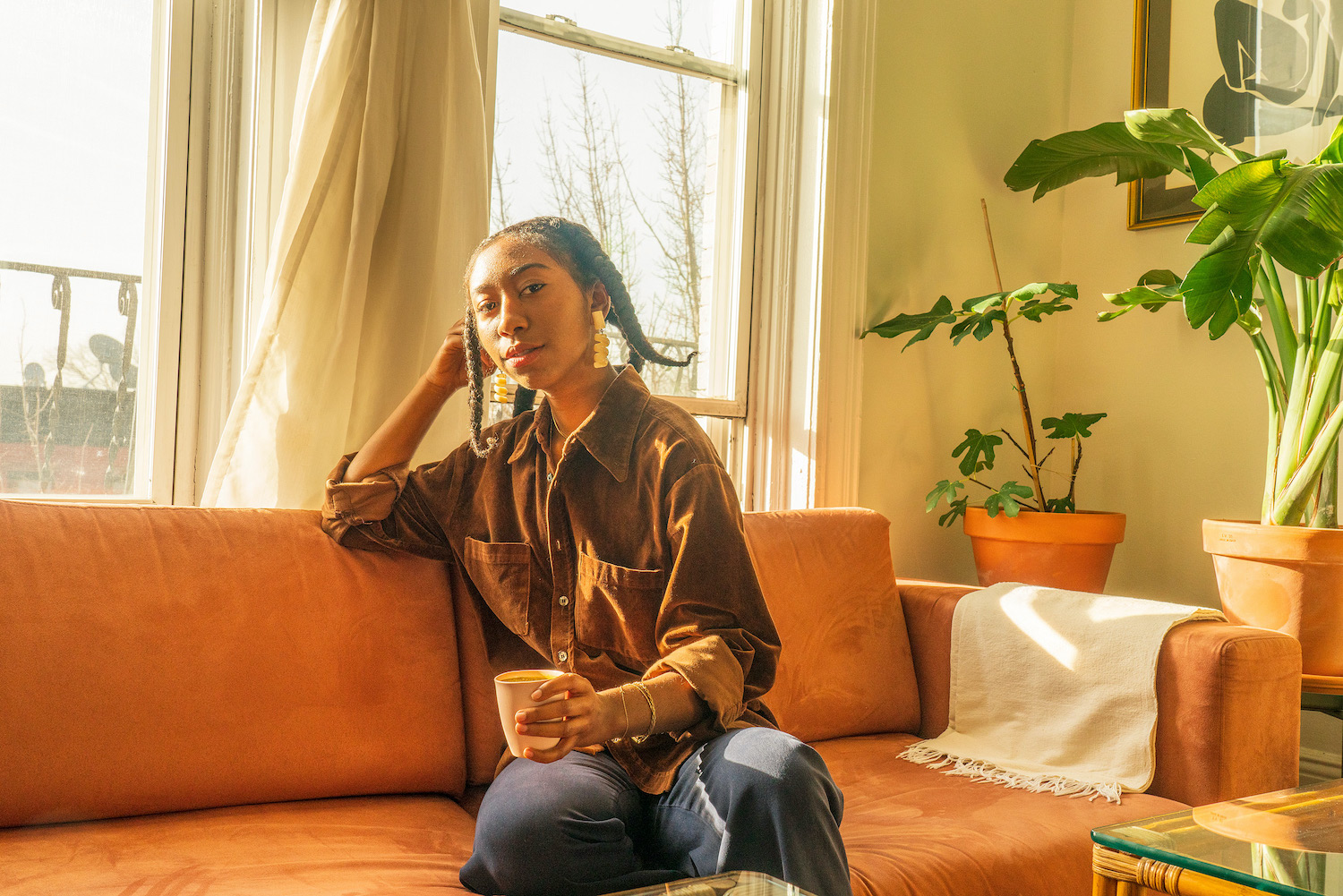
Employees were taking long weekends here and there, but she didn’t feel like they were taking the time off that they deserved. “Especially with a small team where everyone is owning like 10 different things, it’s hard to really be off when everyone else is still on and people are like ‘hey, sorry to bother you I just have one quick question.’” Her solution? Force everyone offline for a week of mandatory PTO.
Mouzon, along with her fiancé and co-founder Issey Kobori, began planning the time off three months ahead of the scheduled June date. “Of course, we immediately thought of all the reasons why that wouldn’t work,” she says. “What do you do for customer service inquiries for people who are placing orders? All of the little things that come up, or feel like they come up every day.” Having strong project management is key, Mouzon advises, “so that you don’t end up with a crazy week beforehand where everyone is almost working double.” Other than the warehouse, which continued to ship out orders, everyone from CX members to social media editors put on an out-of-office reply. An Instagram post announcing the week-long break garnered 80+ comments of encouragement from Golde followers. “It’s been a challenging year for everyone, so I think that, at the end of the day, most people are really grateful to see this as an example of ways that we can all find some sort of balance amidst the madness,” Mouzon says.
The Peculiar Roots community also responded positively to the brand’s mental health days, Darnley shares. In fact, she estimates that the company gets more sales during its monthly day off. “A majority of our consumers are Black women, so they know what it means to be a Black woman in any workplace and the nuances, the struggles that we face on a daily basis,” she says.
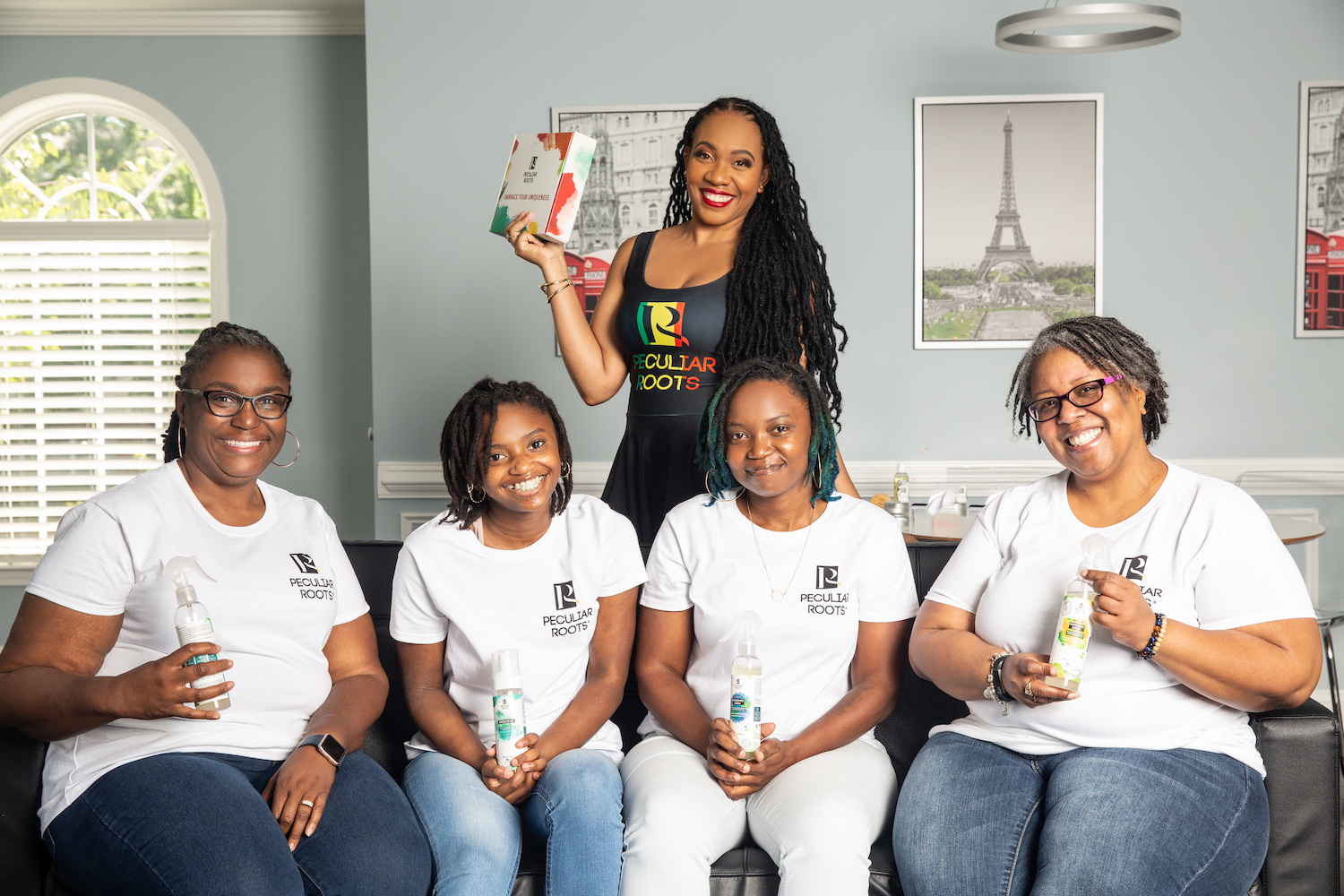
In addition to embracing the shift, customers also hold the team accountable. “I remember when we first mentioned our mental health day, we were still posting online, but they were scheduled posts, and our customers were in the comments like, ‘why are you guys posting? Why are you working? We don’t want to see you in the group. Don’t comment on anything we post, don’t answer our emails,’” Darnley says. “So it’s not only great for us to do this but to have our community challenge us as well and say, ‘Listen, you’re saying you’re taking time off for yourself and spending time with your family, we don’t want to see you online. We don’t want to see you doing anything that’s considered work or even serving us for this one day. Because, when you’re rejuvenated, you’re going to come back and serve us 100%.’”
Self-care has been a big buzzword in the beauty industry over the last few years and conversations around mental health—particularly that of BIPOC-women—took center stage recently as Naomi Osaka and Simone Biles made statements by prioritizing theirs. Selfmade co-founder Stephanie Lee shares that she never even uttered the words mental health before starting her therapy journey a couple of years ago. “As a woman of color, when you see people speaking about mental health, they’re typically white women who are depressed on TV and I remember being like, ‘well, that’s not me,’” she says. “Not being able to really see myself in that I think has been one of the barriers to an early relationship with my own mental health. I realized, as a woman of color, I didn’t have the tools, resources, vocabulary or community around my emotional wellbeing.” Today, she talks to a therapist weekly, journals, and grounds herself in nature.
According to data collected by the United States Census, four in 10 adults in the country are dealing with symptoms of anxiety and depression, up from one in 10 adults prior to the pandemic. The Kaiser Family Foundation has found roughly a third of adults are having sleeping and eating difficulties as a result of mental health strain. Selfmade was born in the early stages of the pandemic and Lee’s hyperaware of the toll this past year has taken on her team of five. She instituted mental health weeks in March 2020 and continues to implement them once per quarter. They involve, “finding time when we can be quiet on slack, be quiet via email so that folks can actually do what they need to do to take care of themselves,” she explains.
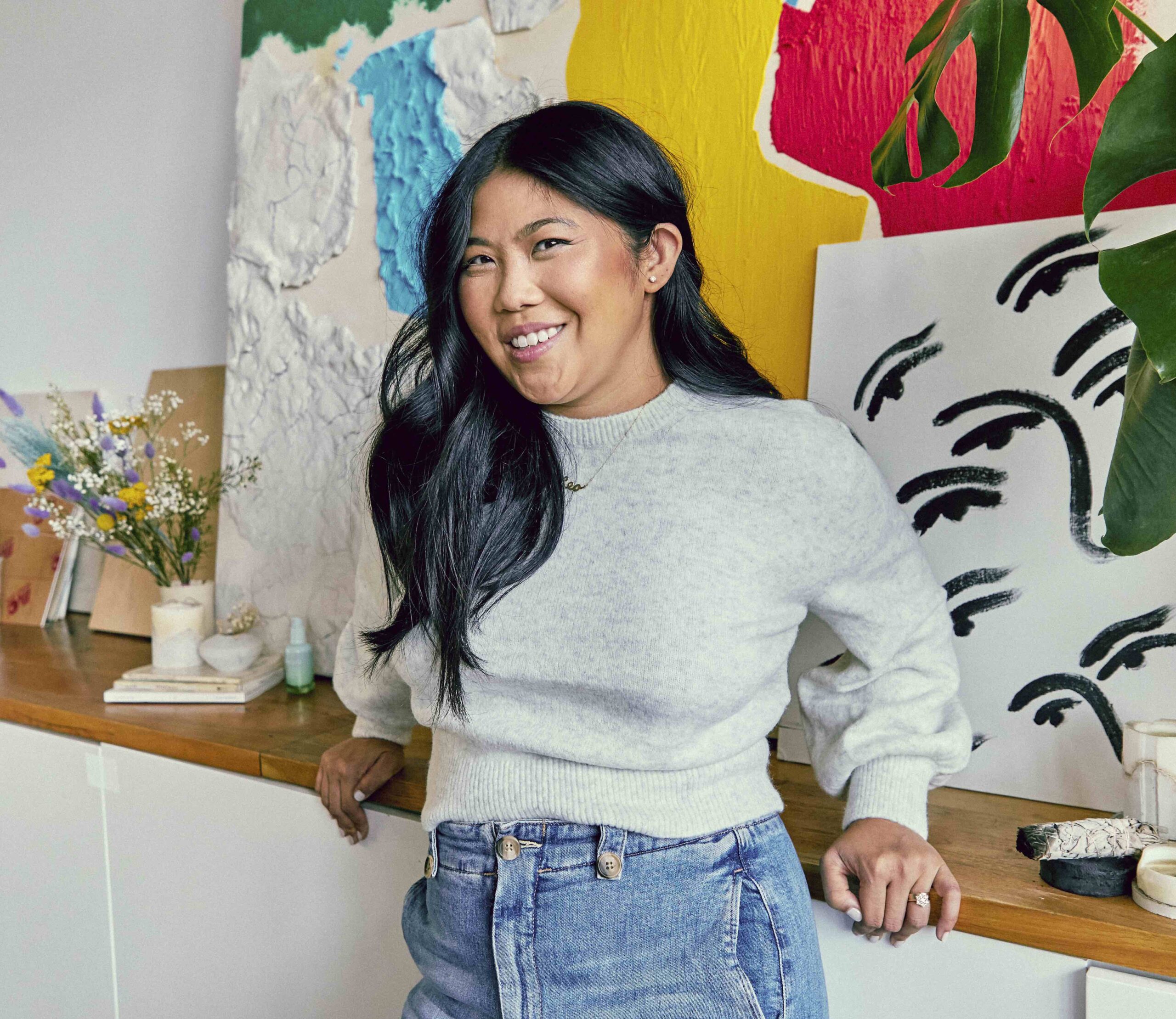
She also tries to schedule meetings on Tuesdays and Thursdays when her team is most productive and, more recently, implemented no-camera meetings to stave off Zoom fatigue. “Looking at yourself all day long probably is not the best thing as it’s like we’re staring at a mirror,” she says. “It also takes an extra level of effort to watch everyone’s movements, so really taking off that layer of pressure I think has been something interesting that we are experimenting with.”
Communication among employees is vital as well. “Talk to your team, listen to the team,” Lee says. “Teams perform better when they are feeling psychologically safe at work. Whether it’s being vulnerable enough to offer a new idea, to give feedback, to take feedback, at the core of that is psychological safety.” Mouzon agrees, noting, “Taking stock of where everybody is at is a really essential part of the process and if you overlook that then you’re not going to be able to build solutions toward creating a little bit more harmony in the routine,” she says. “Honesty and transparency is really key.”
Moving forward, Darnley is looking into offering a therapist once a month for her employees. “Whatever our team needs to be whole, not just within the workplace but overall,” she says. For now, she wants to continue to challenge the work status quo. “When you look at major corporations, [mental health] is not a priority, nobody even talks about it or celebrates it in any form,” she says. “I just want to create an environment that I would want to work in every day, and make sure that people show up to work happy.”



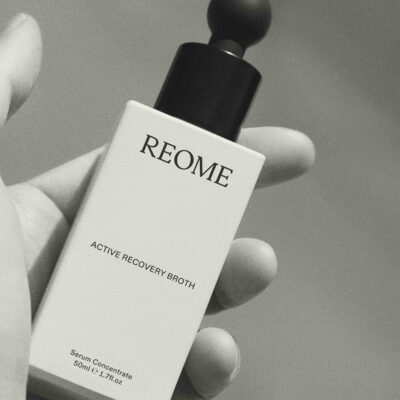
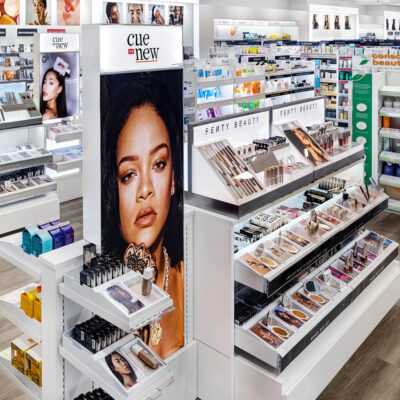
Leave a Reply
You must be logged in to post a comment.